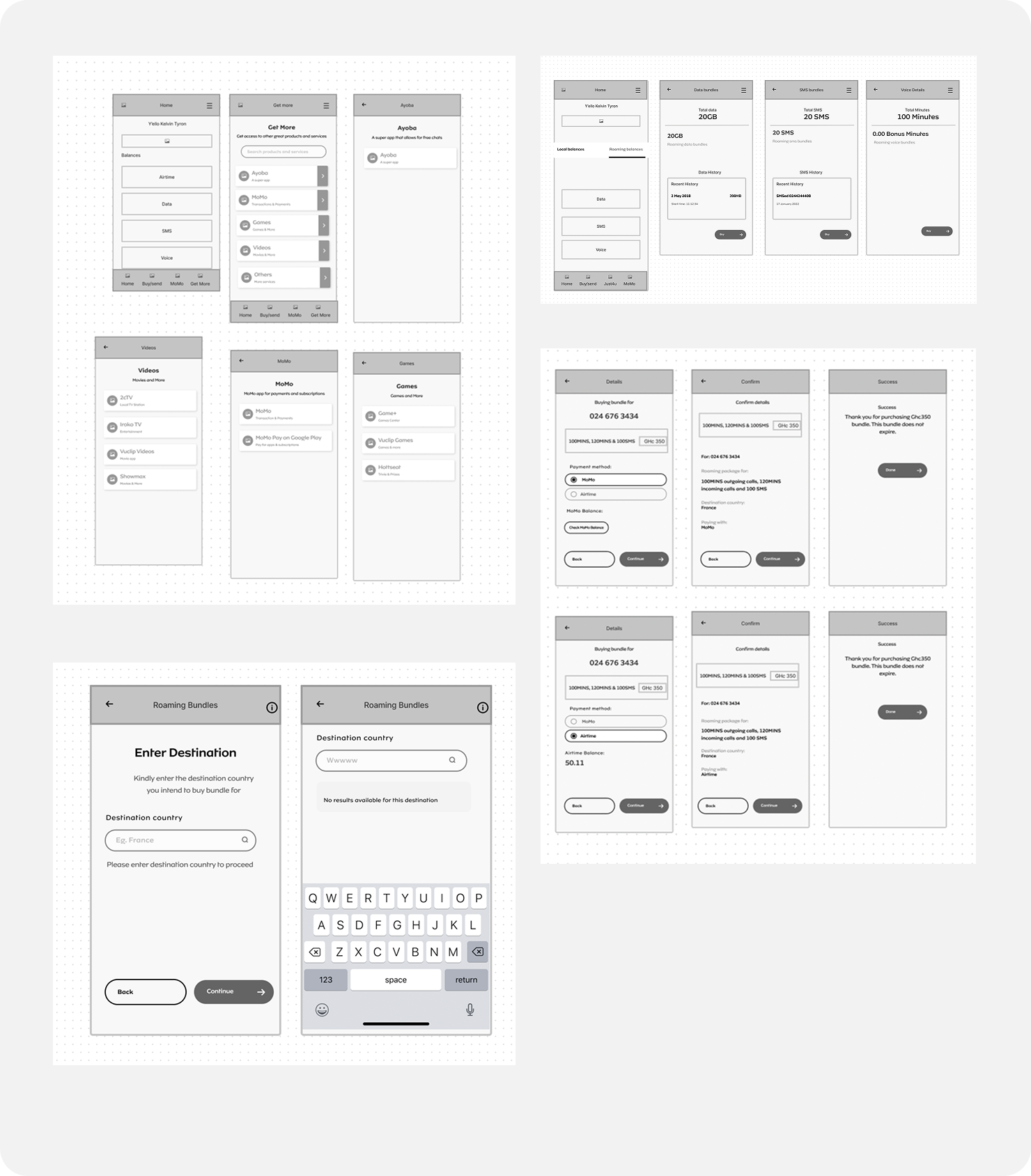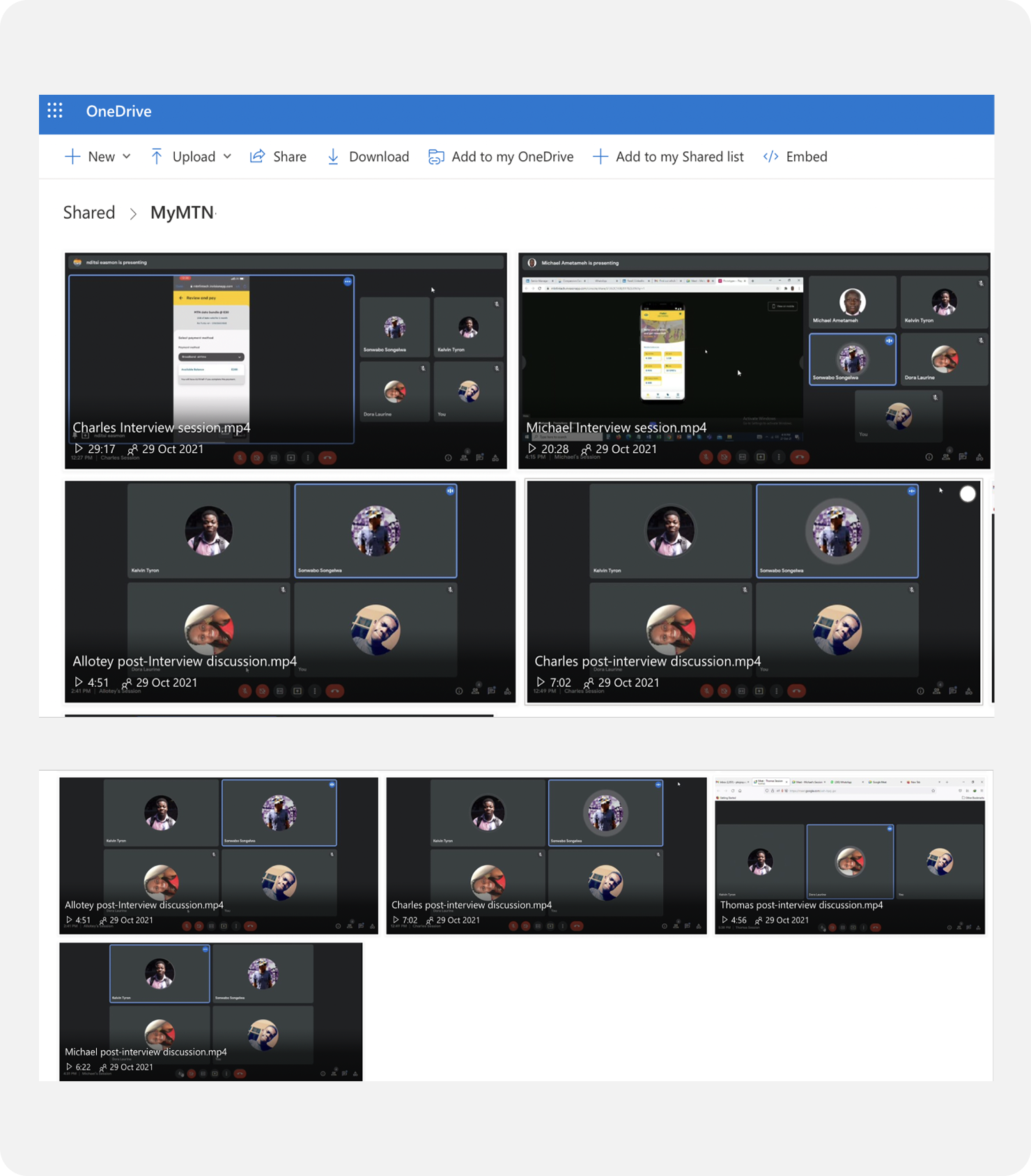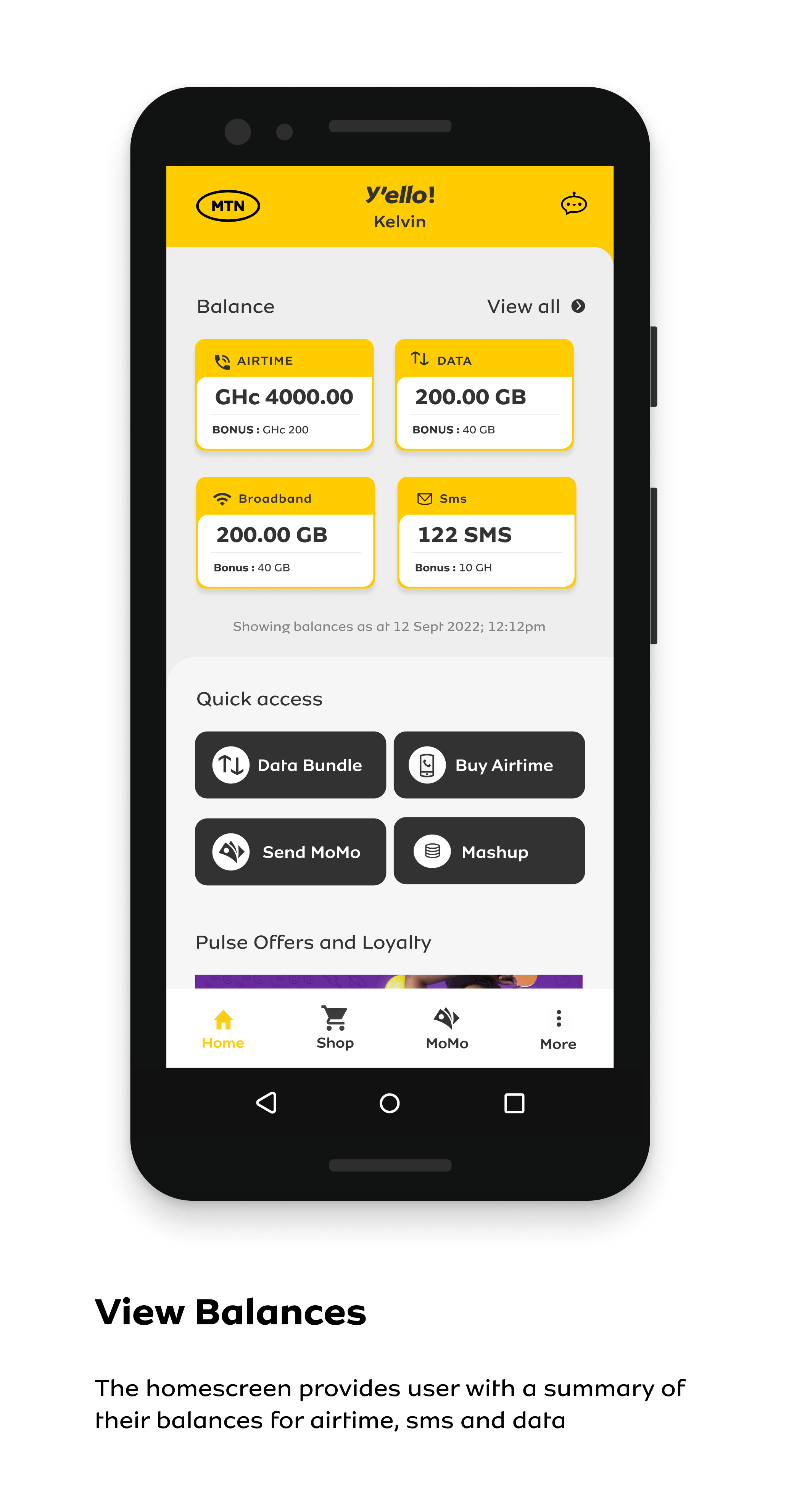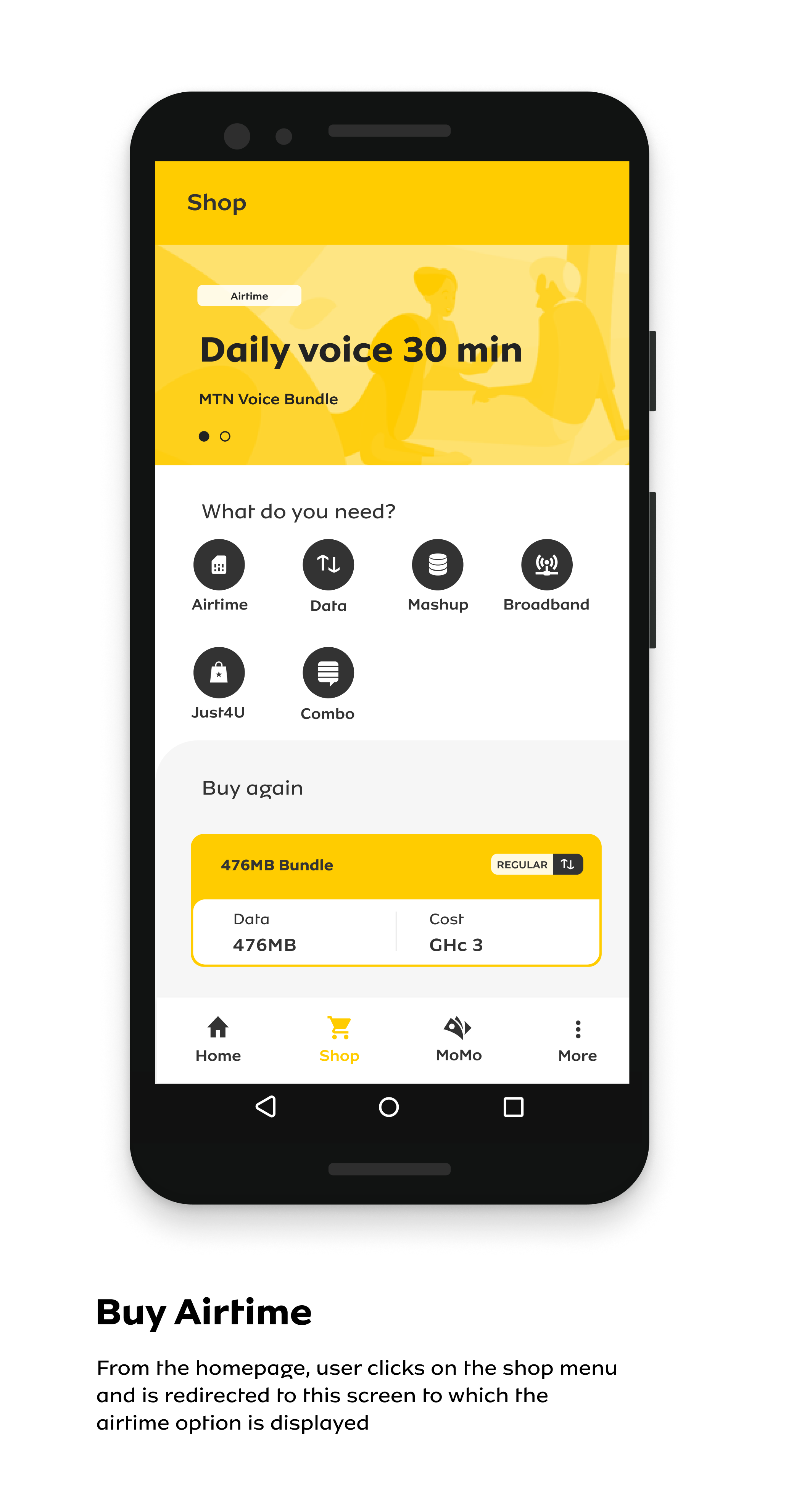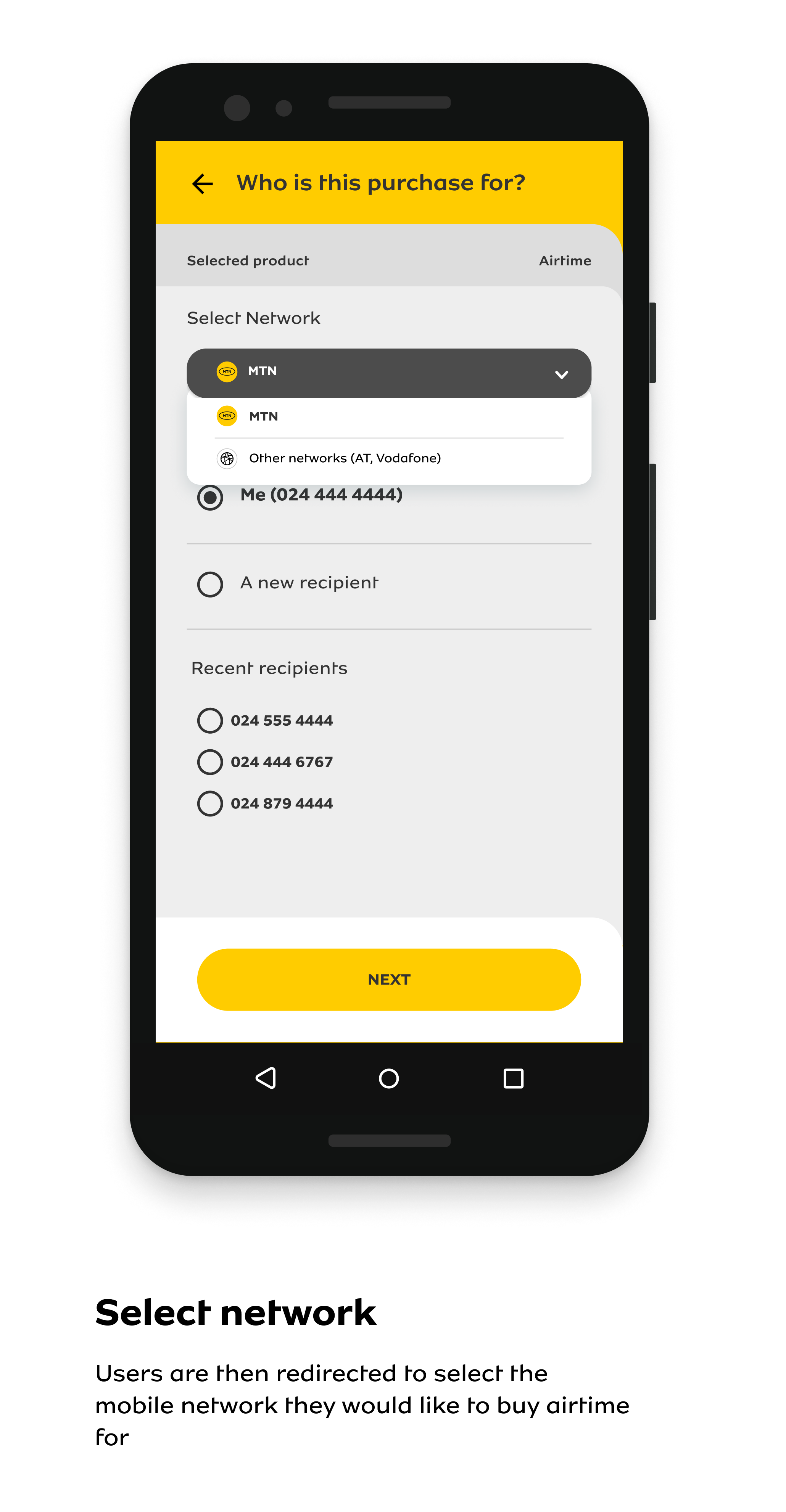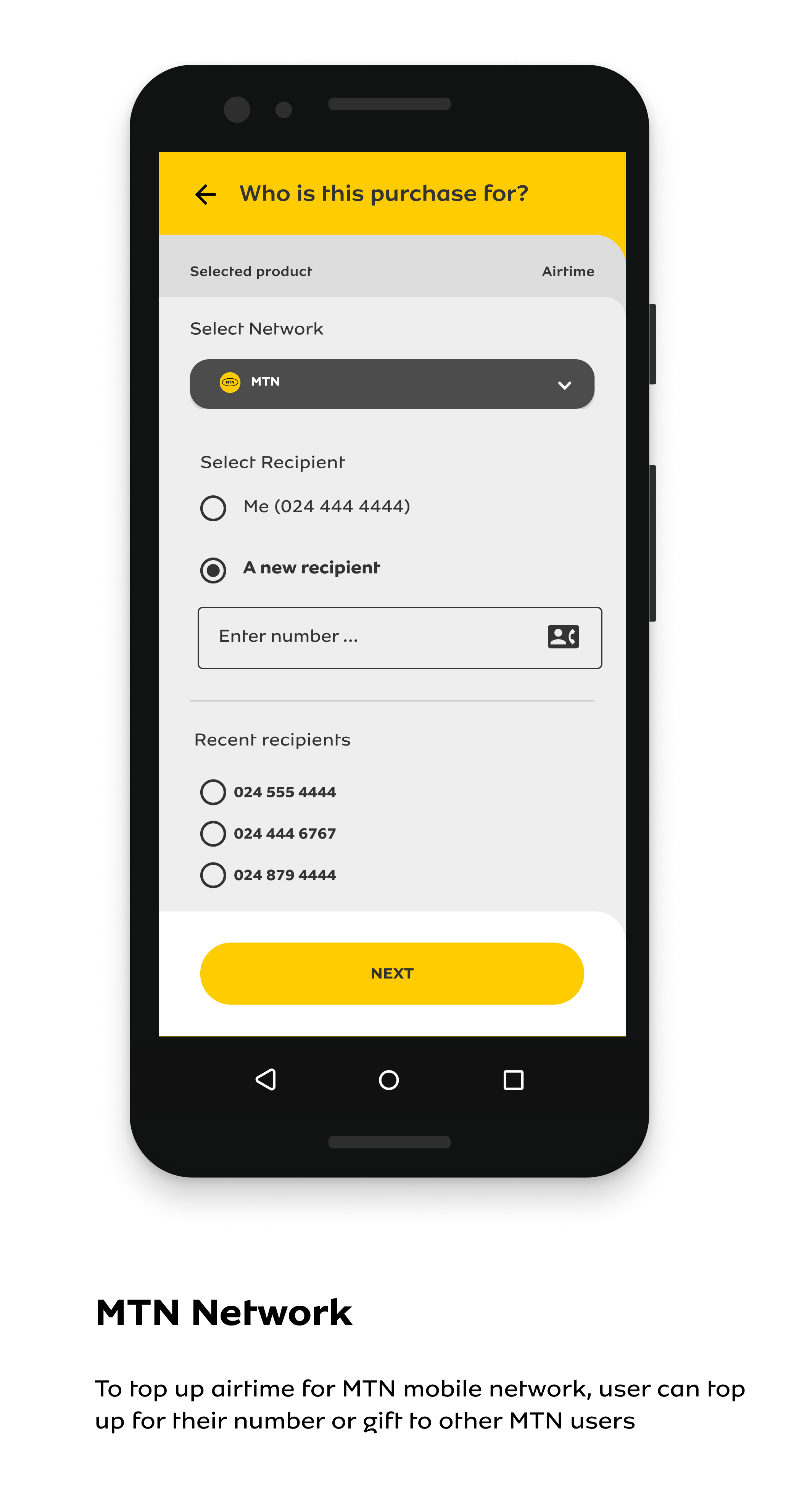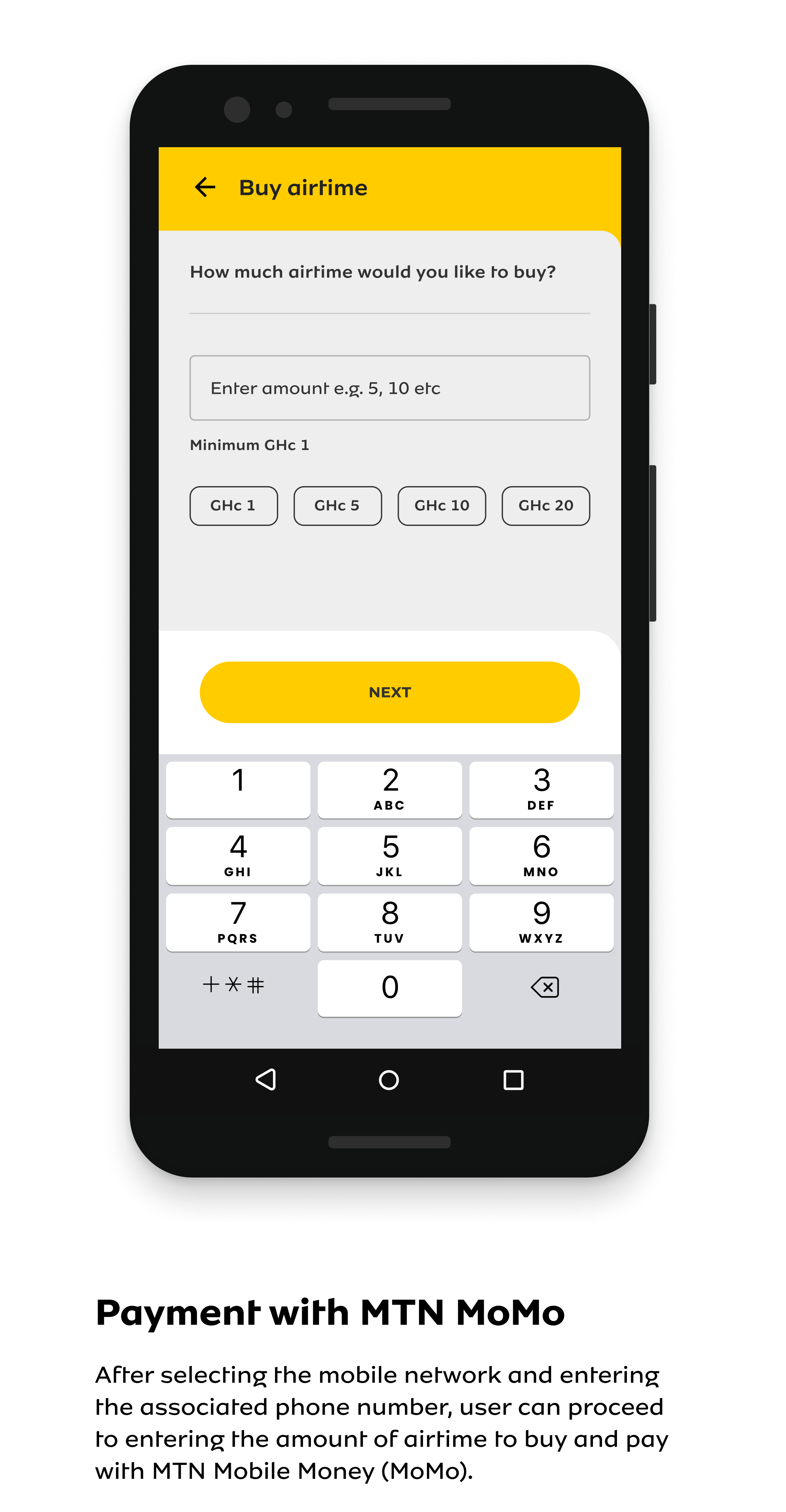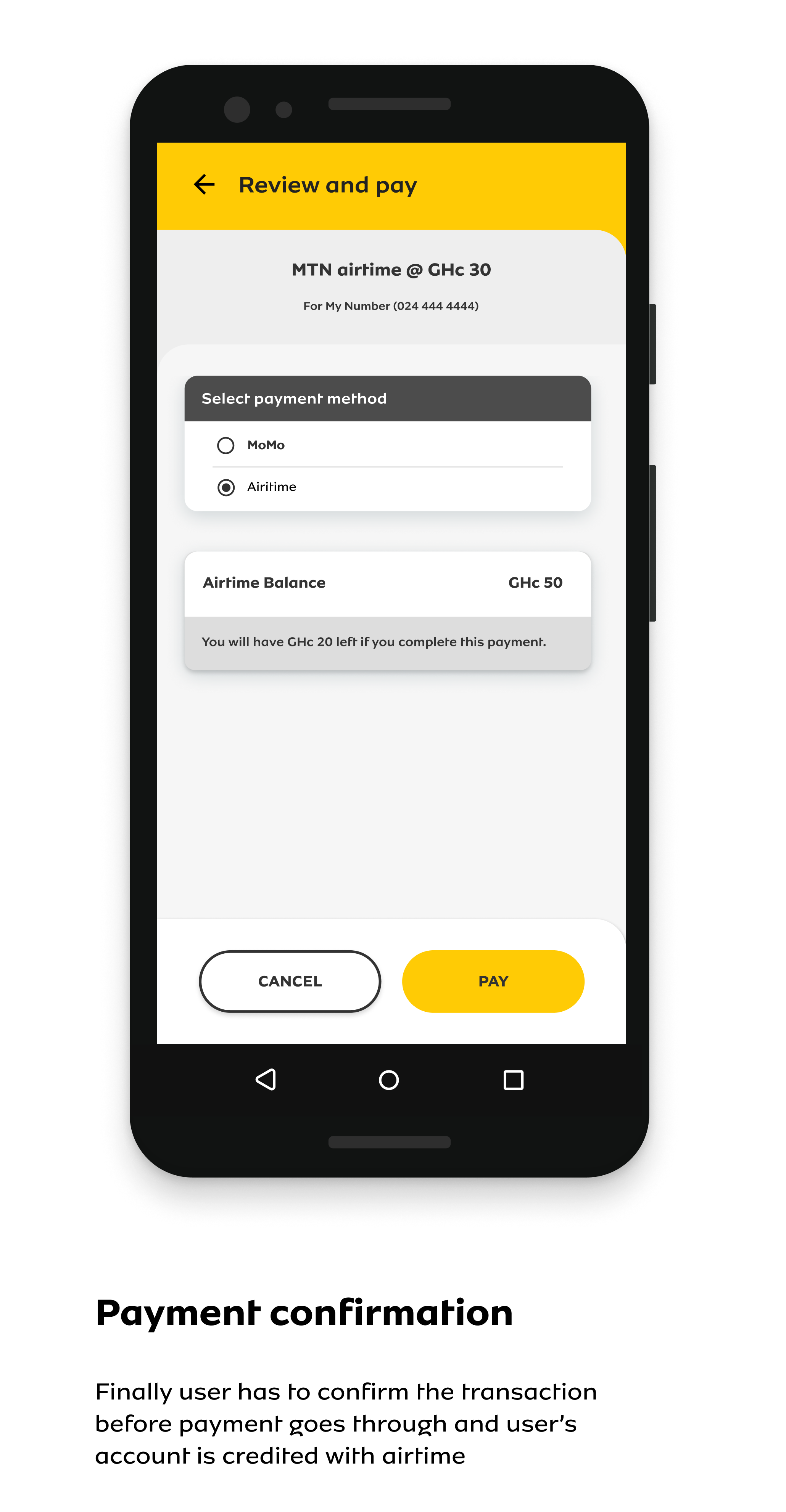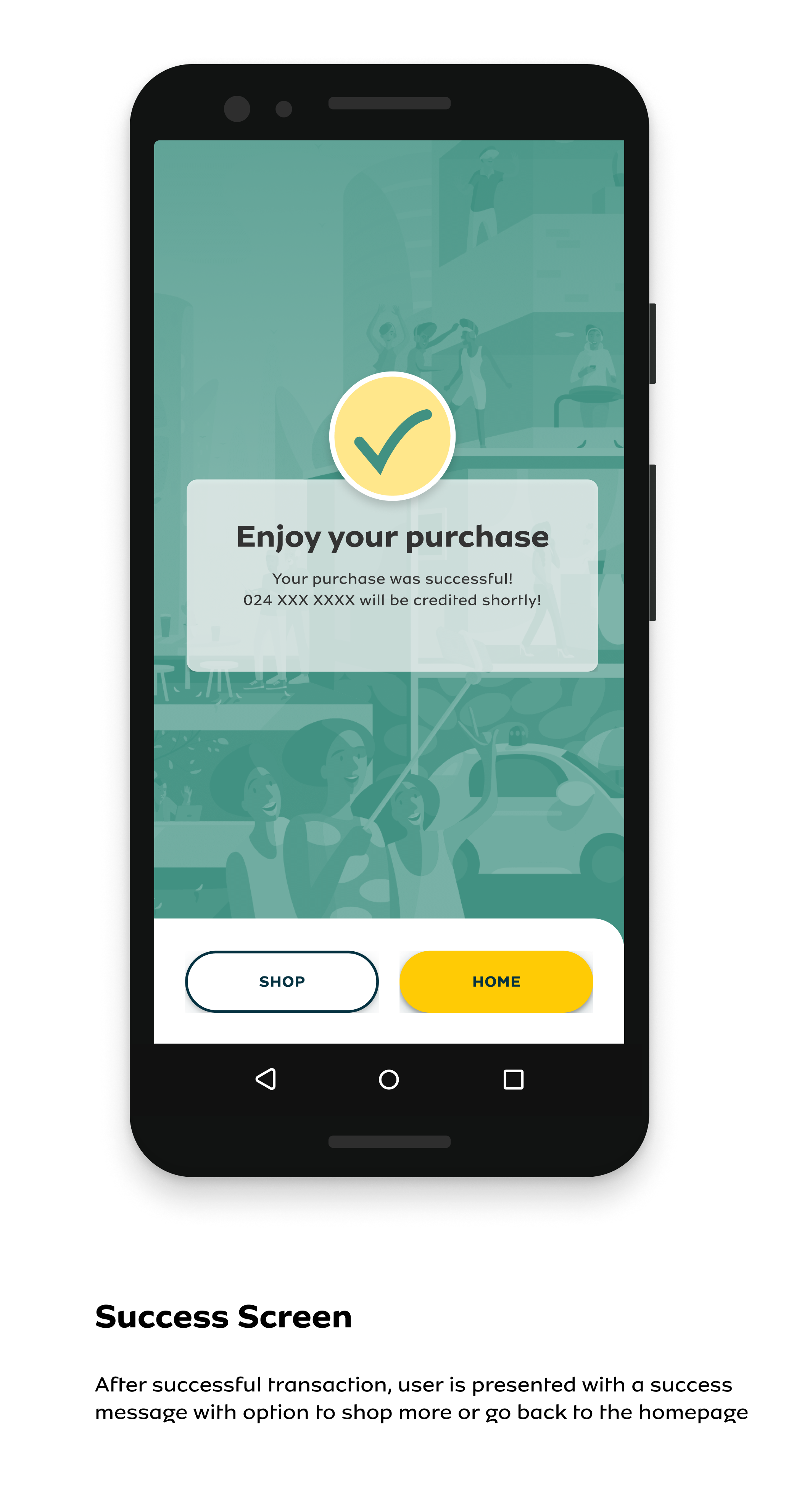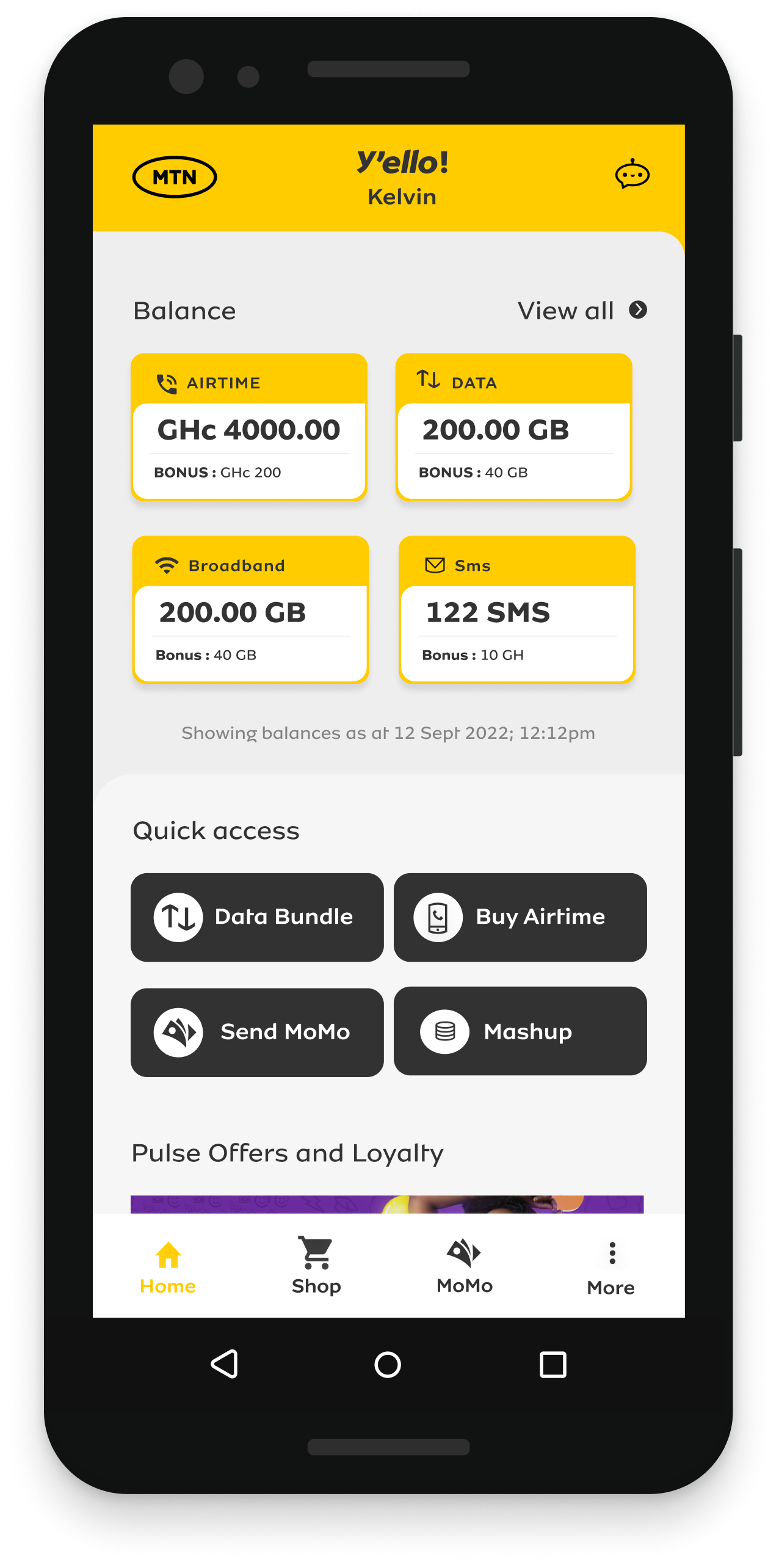
myMTN App
Sponsored by: MTN Ghana
With MyMTN app, users can top up airtime, purchase data bundles, pay bills and much more. The app also ensures customers have access to information about MTN’s products and services.
*To comply with NDA, some details in this case study have been modified or omitted. The content reflects my own work and views, not necessarily those of MTN Ghana. Linked materials may point to evolving live products or prototypes by MTN Ghana.*
Low - high fidelity wireframe, secondary research, user flows, journey mapping.
Dora Opare, Kelvin Tyron
Balsamiq, Figma
